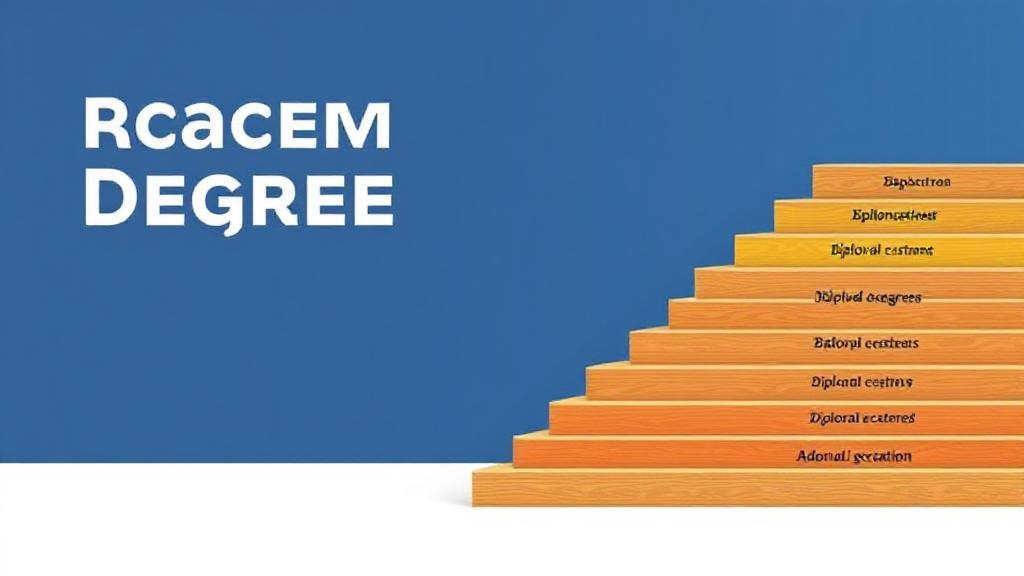Introduction to Academic Degrees
Academic degrees represent different levels of education and expertise, forming a structured progression that reflects increasing specialization and achievement. Understanding this hierarchy is essential for students, educators, and employers navigating the complex landscape of higher education.
Undergraduate Degrees
Associate Degrees
An Associate Degree is typically a two-year program offered by community colleges, technical schools, and some universities. Common types include:
- Associate of Arts (AA)
- Associate of Science (AS)
- Associate of Applied Science (AAS)
These degrees provide essential skills for entry-level positions or serve as stepping stones toward bachelor's degrees through transfer agreements.
Bachelor's Degrees
A Bachelor's Degree is a four-year undergraduate program providing comprehensive education in a specific field. Popular variants include:
- Bachelor of Arts (BA)
- Bachelor of Science (BS)
- Bachelor of Fine Arts (BFA)
- Bachelor of Business Administration (BBA)
Honors Distinctions
Academic excellence at the bachelor's level is recognized through Latin honors:
- Summa cum laude (highest honors)
- Magna cum laude (high honors)
- Cum laude (honors)
Graduate Degrees
Master's Degrees
Master's programs typically require 1-3 years of specialized study beyond the bachelor's level. Common degrees include:
Doctoral Degrees
The doctoral degree is the highest level of academic achievement and generally falls into two categories:
Research Doctorates
The most common research doctorate is the Ph.D. (Doctor of Philosophy), which can be earned in nearly any academic discipline.
Professional Doctorates
| Degree | Field |
|---|---|
| MD | Medicine |
| JD | Law |
| DDS | Dentistry |
| PsyD | Psychology |
| PharmD | Pharmacy |
Post-Doctoral Studies
"Post-doctoral research represents the bridge between supervised research and independent scholarship."
Post-doctoral positions allow Ph.D. holders to conduct independent research, often leading to academic or research positions. These fellowships typically last 2-3 years.
Career Impact and Recognition
Each level of education typically correlates with increased earning potential. According to the U.S. Bureau of Labor Statistics, higher degrees generally lead to:
- Lower unemployment rates
- Higher median weekly earnings
- Greater career advancement opportunities
Online Education and Certifications
With the rise of online learning, numerous certifications and courses are available through platforms like Coursera, edX, and Udemy. These complement traditional degrees and provide specialized knowledge in specific areas.
For more comprehensive guidance, consider visiting U.S. News Education or the National Center for Education Statistics for the latest educational insights and trends.
Different countries may use varying terminology for similar academic achievements. The Bologna Process in Europe has helped standardize degree recognition across borders.
